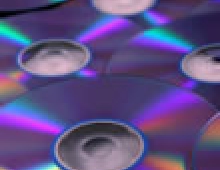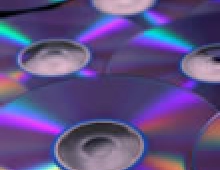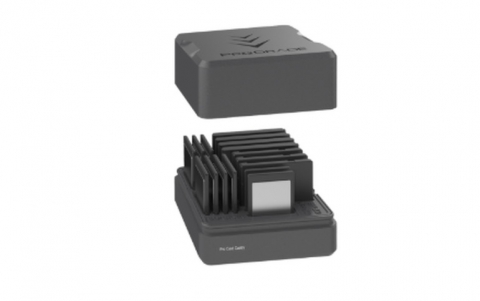
Plastic material could see DVD apps this year
"...An ultra-clear plastic material currently used for applications like precision optics and medical packaging is under consideration for next-generation DVDs, and could see introduction in certain DVD products this year.
In partnership with plastics supplier Ticona, whose U.S. operations is headquartered here, major international replicators are now testing its Topas (pronounced "topaz") cyclic olefin copolymer (COC), not as a polycarbonate replacement, but as a potential substrate for high-density DVDs and other formats that demand tighter physical specification parameters. Michelle Bitretto, Ticona's marketing head for optical media projects, commented that the company is seeking media applications where COC offers performance advantages over polycarbonate. "Compared to polycarbonate, Topas has much lower birefringence, which means that you can get a higher density data storage without distortion," she explains about the material. "It is transparent in the blue laser region, so for those formats where you would be reading through the substrate, it would obviously offer significant advantages. [The material] picks up just about no water-compared to a polycarbonate or even an acrylic, it won't warp or change with humidity."
Topas also has opposite chemical resistances in most cases than polycarbonate or acrylics, Bitretto continued. "So in rewritable applications, we can offer some advantages by the enabling companies to use less exotic solvents (recording dyes). We can afford some cost savings there." Bitretto revealed that Ticona was working "with some of the biggest" international replicators and recording media developers on using Topas in their future products, but declined to share specific companies or products..." NULL
In partnership with plastics supplier Ticona, whose U.S. operations is headquartered here, major international replicators are now testing its Topas (pronounced "topaz") cyclic olefin copolymer (COC), not as a polycarbonate replacement, but as a potential substrate for high-density DVDs and other formats that demand tighter physical specification parameters. Michelle Bitretto, Ticona's marketing head for optical media projects, commented that the company is seeking media applications where COC offers performance advantages over polycarbonate. "Compared to polycarbonate, Topas has much lower birefringence, which means that you can get a higher density data storage without distortion," she explains about the material. "It is transparent in the blue laser region, so for those formats where you would be reading through the substrate, it would obviously offer significant advantages. [The material] picks up just about no water-compared to a polycarbonate or even an acrylic, it won't warp or change with humidity."
Topas also has opposite chemical resistances in most cases than polycarbonate or acrylics, Bitretto continued. "So in rewritable applications, we can offer some advantages by the enabling companies to use less exotic solvents (recording dyes). We can afford some cost savings there." Bitretto revealed that Ticona was working "with some of the biggest" international replicators and recording media developers on using Topas in their future products, but declined to share specific companies or products..." NULL


















